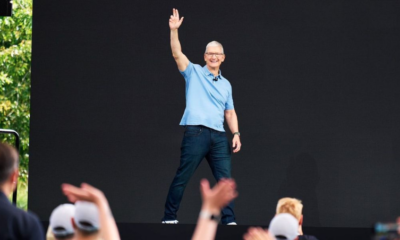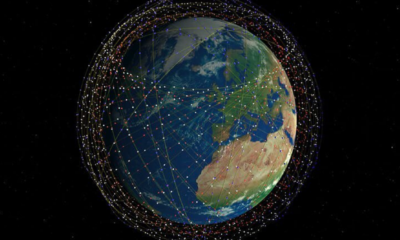NEWS
Google’s Gemini Raises Questions on AI Monopolies
Published
8 months agoon

Courtesy of inner_detail/Instagram
Google has reportedly given a select group of companies access to a testing version of its Gemini AI, artificial intelligence software meant to compete with OpenAI’s GPT-4.
Gemini is expected to be a series of large-language models that can perform chatbot functions like summarizing or composing text, as well as generate software code and original images. According to a report from The Information, the search giant has given developers access to a large but limited version of Gemini for testing.
In the rapidly advancing world of artificial intelligence, the quality of training data is paramount, and Google, with its vast data repositories, is poised to make significant strides despite coming late to a party dominated by the massively popular ChatGPT and GPT-4 models from Microsoft-backed OpenAI.
AI capabilities are largely determined by training data. With Google’s extensive reach and data collection, it arguably possesses one of the most comprehensive training sets available.
This data superiority places Google in a unique position to lead in AI advancements, but it also raises concerns about potential monopolistic behaviors in the AI industry.
The tech community and industry watchers are now speculating on Google’s next moves. Will the tech behemoth restrict access to its data, limiting other companies from leveraging huge troves of training material? Such actions could echo past tech monopolies.
During the late 1990s and early 2000s, Microsoft faced antitrust scrutiny for bundling its Internet Explorer browser with the Windows operating system, a move seen as stifling competition. Google itself is facing an antitrust trial for similar search engine defaults on mobile devices, and faces an additional antitrust lawsuit for allegedly monopolizing digital advertising technologies.
If Google were to limit access to its data, notably YouTube, it could be perceived as an abuse of power. Such actions could stifle innovation, raising concerns about the concentration of technological power.
“On one hand, Google, et al., have a right to enforce their copyrights and ownership of media. On the other hand, centralizing the data that AI needs in the hands of a few select companies will stifle innovation,” said AI activist and futurist Peter Swain.
“This isn’t a space where we can afford to restrict innovation. If the U.S. wants to lead the world throughout the next decade, it can’t allow itself to fall behind emerging world powers,” Swain said.
TMX contributed to this article.
More Money + Investing
-


Oil prices are rising again, helped by weaker dollar
-


Newsom Signs Law Giving California Fast Food Workers A $20…
-


Apple Expected to Unveil New iPhone 15 Lineup Tuesday
-


US Diesel Supplier Warns of East Coast Shortage
-


Price Cap On Russian Oil Goes Into Effect
-


Biographer Walks Back Claim That Elon Musk Cut Off Ukraine’s…
-


Boeing workers to strike
-


Euro nears parity with US dollar
-


McDonalds Says US Sales Are Up Despite Inflation
-


Users Can Now Claim Fortnite Refunds As Part of FTC…
-


Federal Reserve Leaves Rates Unchanged As Inflation Slows
-


Microsoft lays off 1,000 workers
